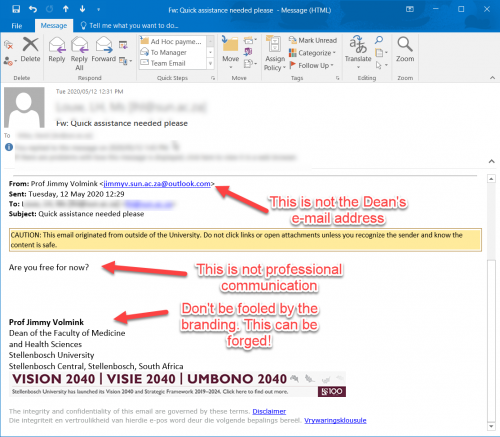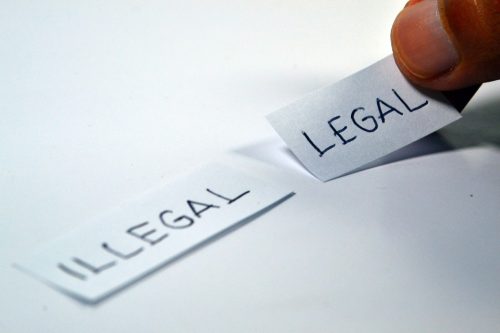[:en]
We are well aware of the growing risks of working online – whether it’s at our offices or at home as we’ve been doing recently. The downside of working from home is that it opens opportunities for cyber-attacks and security risks are higher. You can easily fall prey to these security risks when there are more distractions and concerns than usual while working from home.
To protect our staff and students from security attacks in our current situation, as well as when we return to our offices one day, it is important to implement extra security measures. Information Technology has been researching and testing multi factor authentication or MFA over the past few months as an additional measure to protect personal information and data. Read more about MFA here or watch the explanatory video by tech expert Tom Scott.
In short, this will mean that, for certain services, you will be prompted to provide more information in order to authenticate your identity as a Stellenbosch University student or staff member.
By mid-August all staff and students will be required to use multi factor authentication to secure their information and the university network. Although MFA is not mandatory at the moment, you can already enrol by following these steps.
If you have any questions first consult our FAQs and if this does not answer your question, please log your request on our ICT Partner Portal and a technician will contact you.
[:af]
Ons is reeds deeglik bewus van die groeiende risiko betrokke wanneer ons aanlyn werk – hetsy dit in ons kantore is of by die huis is. Die nadeel van by die huis werk is die groter waarskynlikheid vir kuberaanvalle en hoër risiko vir sekuriteitsrisiko’s. Dis makliker om in die strik van sekuriteitsrisiko’s te trap as daar meer afleidings is en die aanlyn-werksomgewing minder veilig is.
Om ons personeel en studente te beskerm teen sekuriteitsaanvalle in ons huidige omstandighede, sowel as wanneer ons terug is op kampus, is dit nodig om ekstra sekuriteitsmaatreëls in plek te sit. Informasietegnologie ondersoek en toets reeds die afgelope paar maande veelfaktorbekragtiging (MFA) as `n addisionele maatreël om persoonlike inligting en data te beskerm. Lees meer oor MFA hier of kyk na tech-deskundige, Tom Scott, se verduideliking.
In kort beteken dit dat jy wanneer jy vir sekere dienste aanteken, jy gevra sal word om addisionele inligting te verskaf om jou identiteit as Universiteit Stellenbosch personeellid of student te bevestig.
Teen middel-Augustus sal daar van alle personeel en studente verwag word om veelfaktor-bekragtiging te gebruik om hulle inligting en die universiteit se netwerk te beskerm. Alhoewel MFA nog nie verpligtend is nie, kan jy reeds registreer deur die volgende stappe* te volg.
Indien jy enige vrae het, kyk asb. na ons FAQ-dokument en as jou vraag nog nie beantwoord word nie, teken asb. jou versoek aan op die ICT Partner Portal waarna ʼn tegnikus jou sal kontak.
[:]



